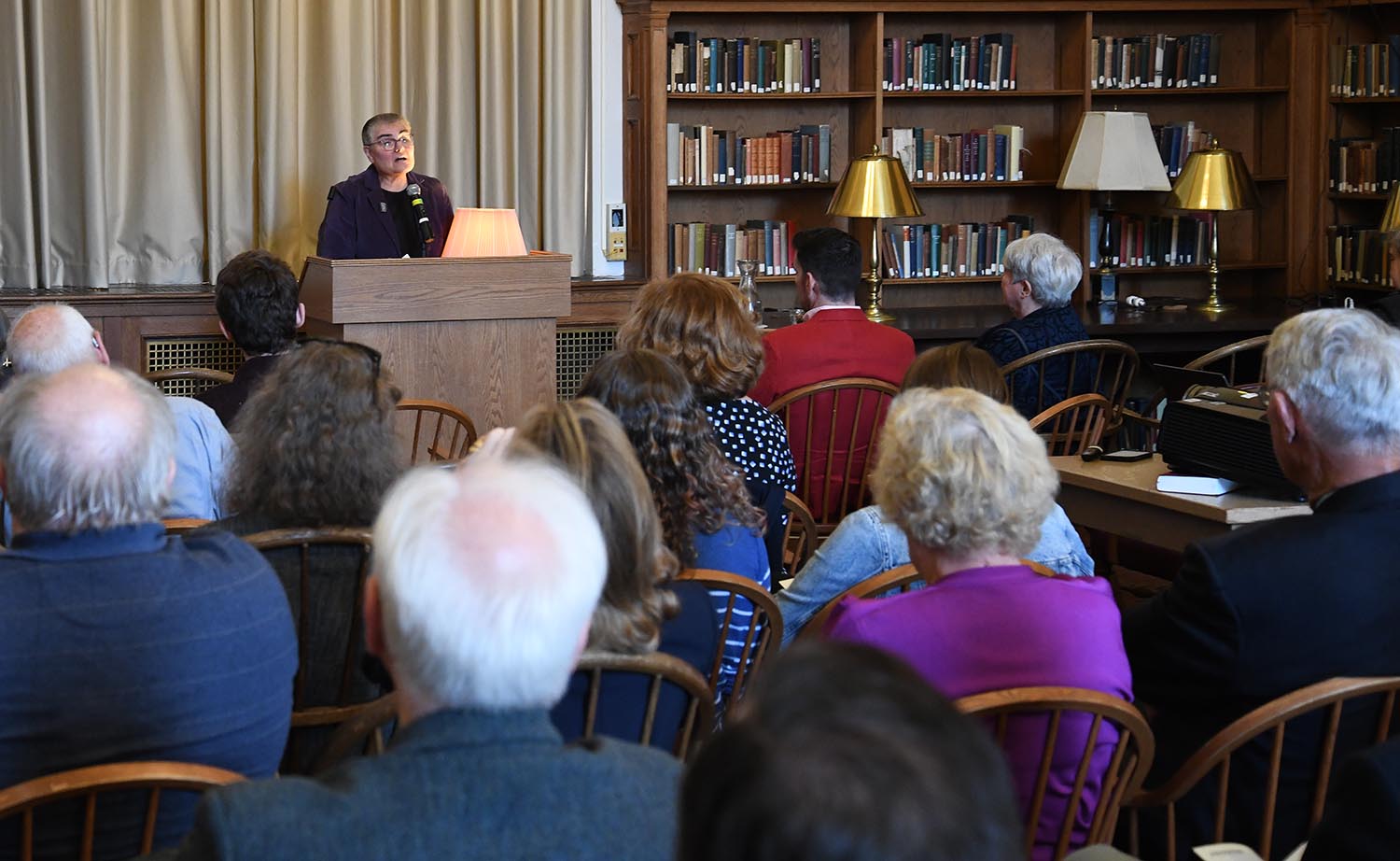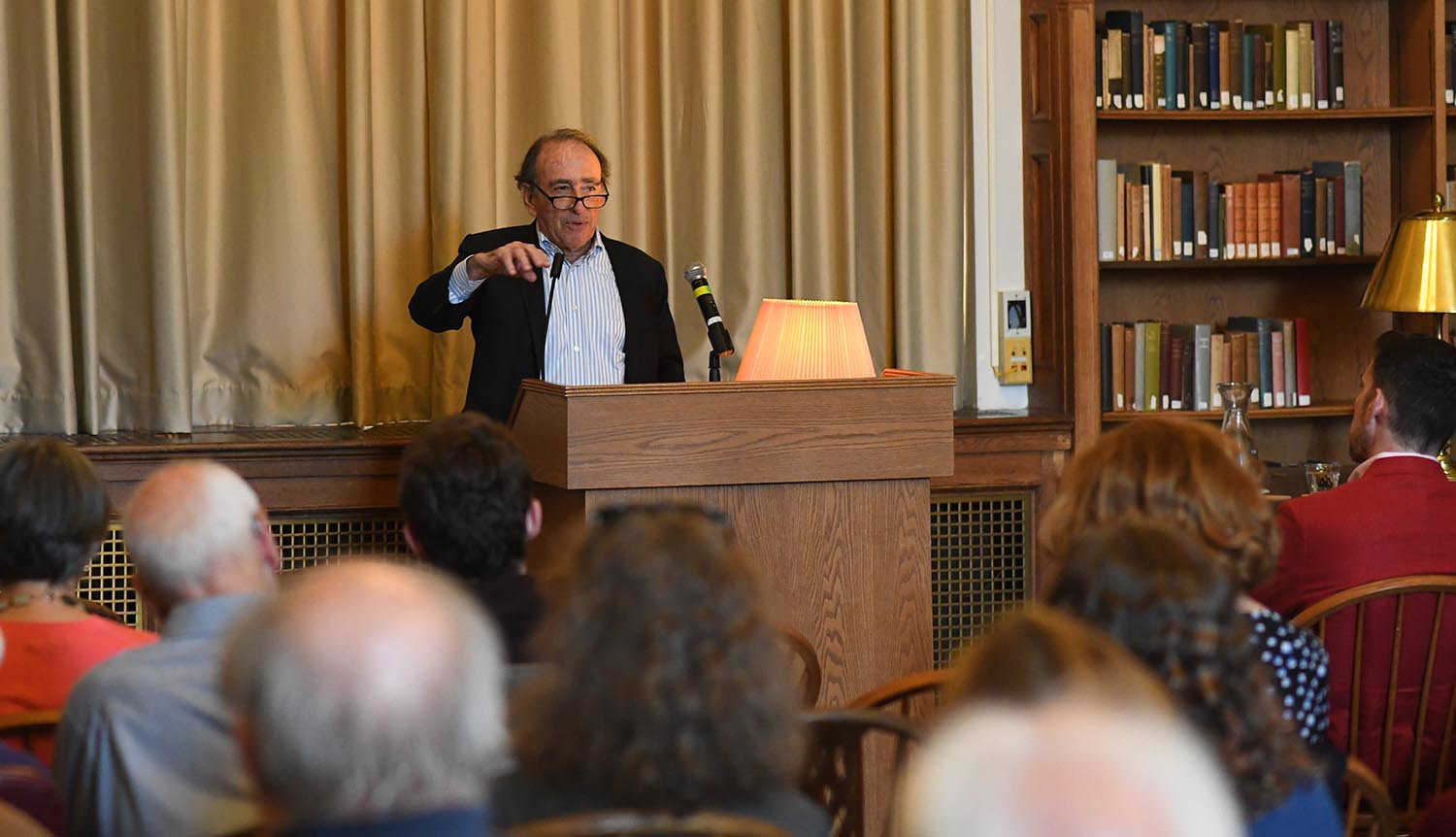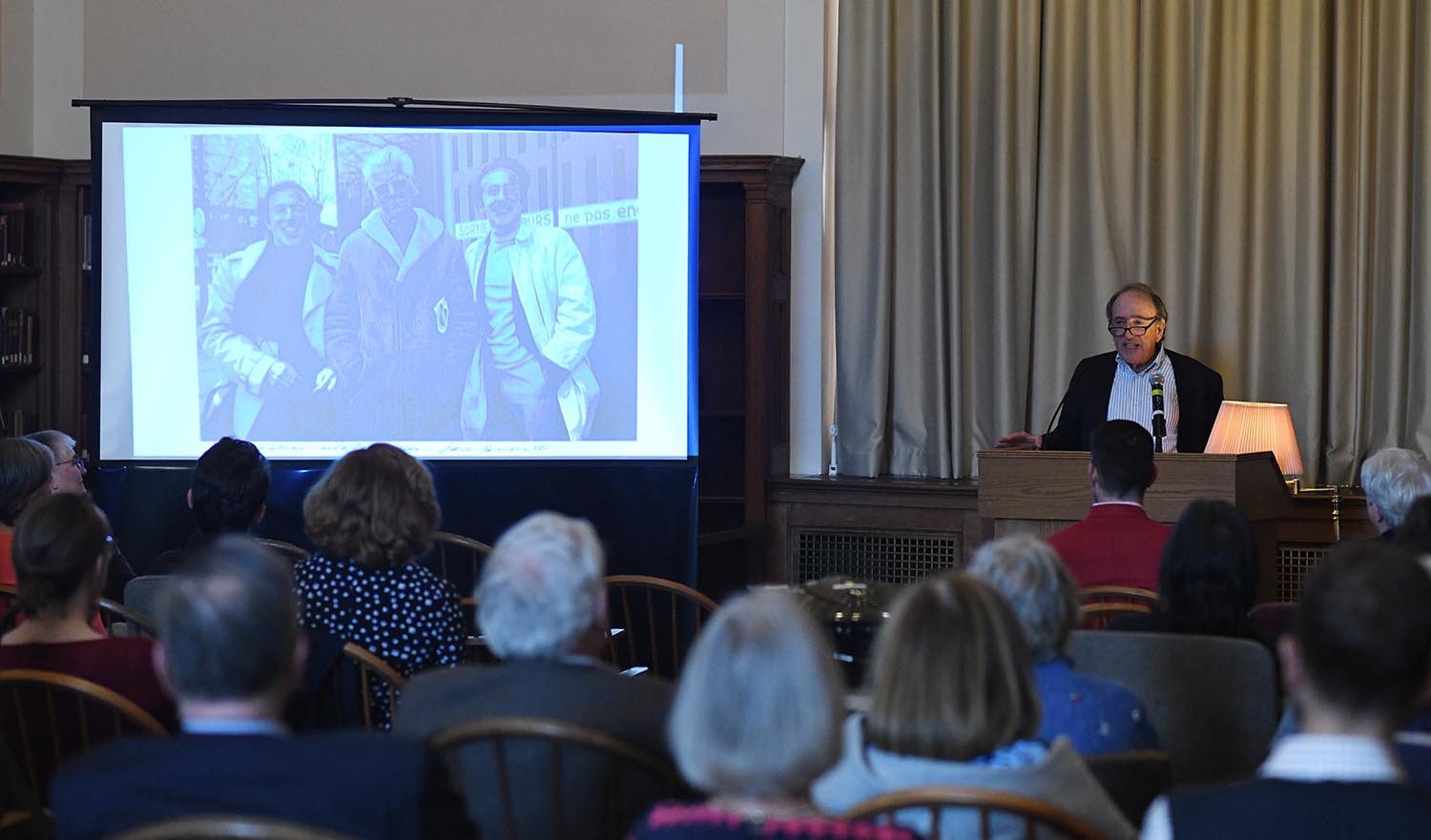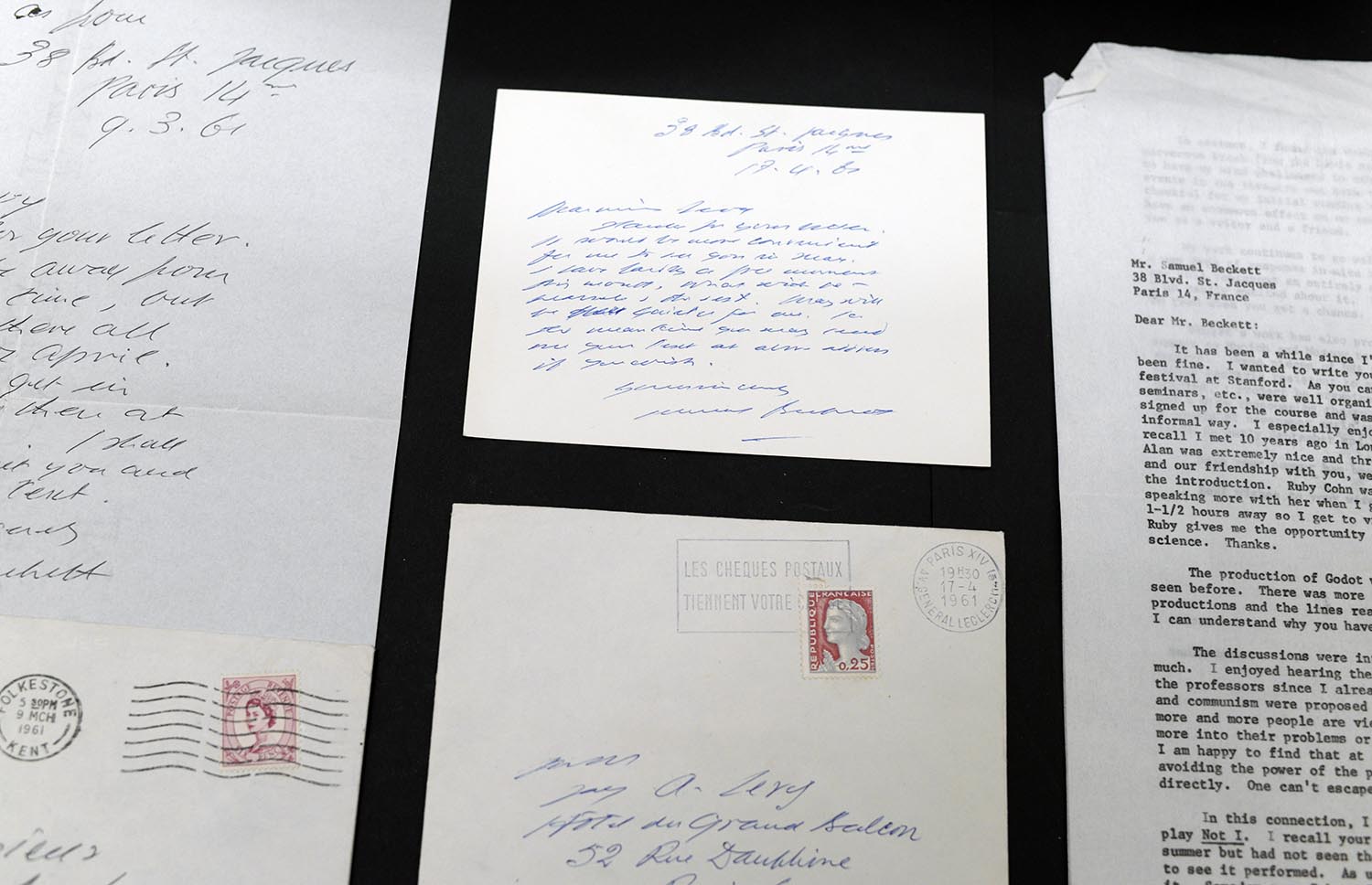Gift of Beckett Letters by Levy ’60 Inspires Homage Symposium
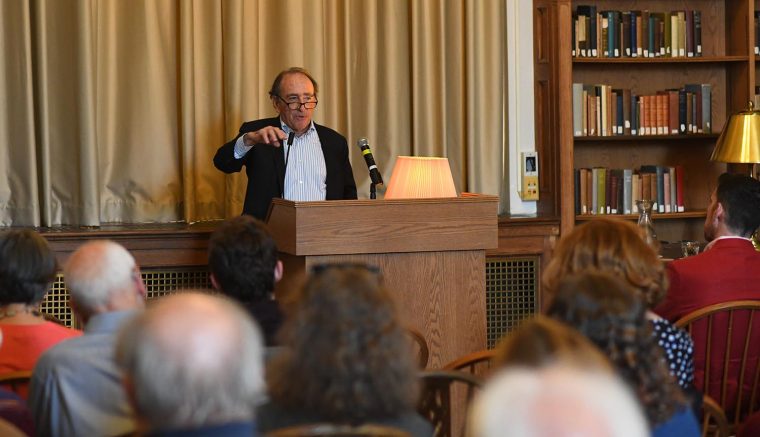
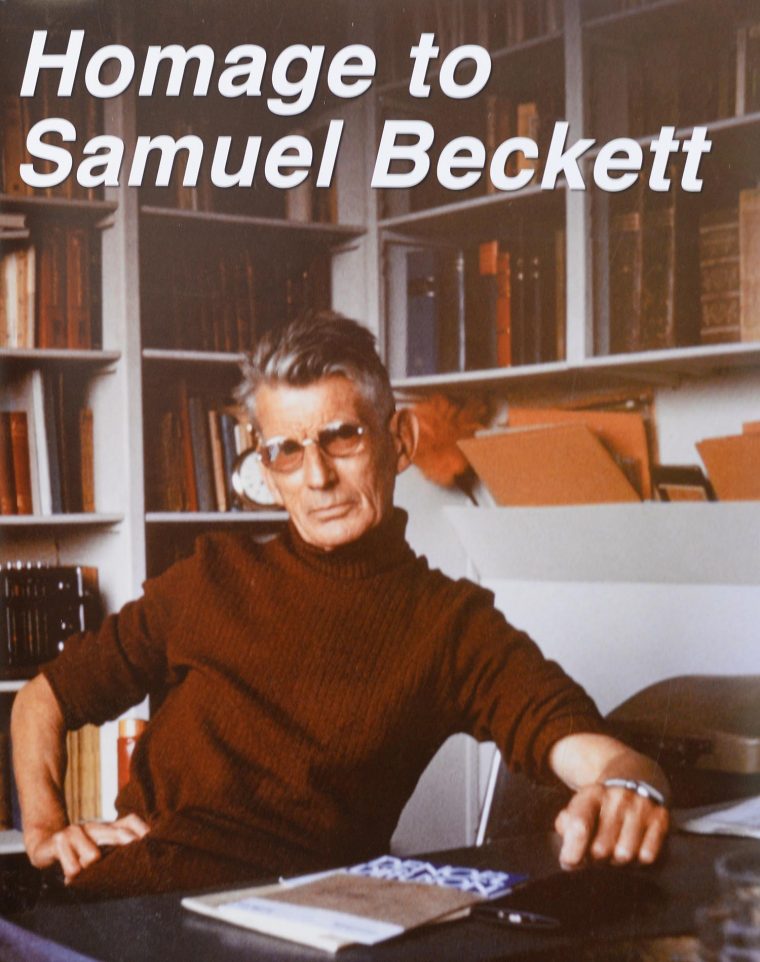
Wesleyan’s Special Collections and Archives is now home to a robust collection of novelist and playwright Samuel Beckett’s letters and books.
The memorabilia was donated to Wesleyan by Beckett’s longtime friend Jay Levy ’60, Hon. ’96, and his wife, Sharon.
On Oct. 24, Levy joined Samuel Beckett scholar Lois More Overbeck; President Michael Roth ’78; Caleb T. Winchester University Librarian at Wesleyan Andrew White; Professor of Theater Ron Jenkins; and Assistant Professor of French Michael Meere for a symposium titled “Homage to Samuel Beckett.” The event, held in Olin Library’s Smith Reading Room and attended by students, faculty, friends, and scholars honored Levy’s recent gift to the library: his personal correspondence with Samuel Beckett over nearly 30 years.
According to Levy, his decades-long friendship with Beckett was sparked by a conversation he had as an undergraduate awaiting the arrival of his date at Bradley Airport for Spring Weekend in 1959.
“The arrival board and announcements kept reporting delays, but assurances that the plane would arrive,” Levy recalled. “After some hours a Wes student near me said, ‘This is like waiting for Godot.’ I was curious enough (lucky for me!) to inquire, ‘What is Waiting for Godot?’ and was informed that it was a play by an Irish playwright, Samuel Beckett, living in France. More detail indicated that it had been performed in French six years before and fit into the Theater of the Absurd.” Coincidentally Levy had just begun a French literature course on just that topic.
A few days later, Levy spoke with French professor Alex Szogyi, about Waiting for Godot, and subsequently wrote a paper on the play for the course. While Szogyi didn’t agree with Levy’s thesis—which noted religious references suggesting that “Godot” was meant to be God—he “apparently considered it sufficiently noteworthy to suggest my sharing it with Professor Mayoux at the Sorbonne (who knew Beckett) when I went to Paris to conduct biological research after graduation,” Levy said.
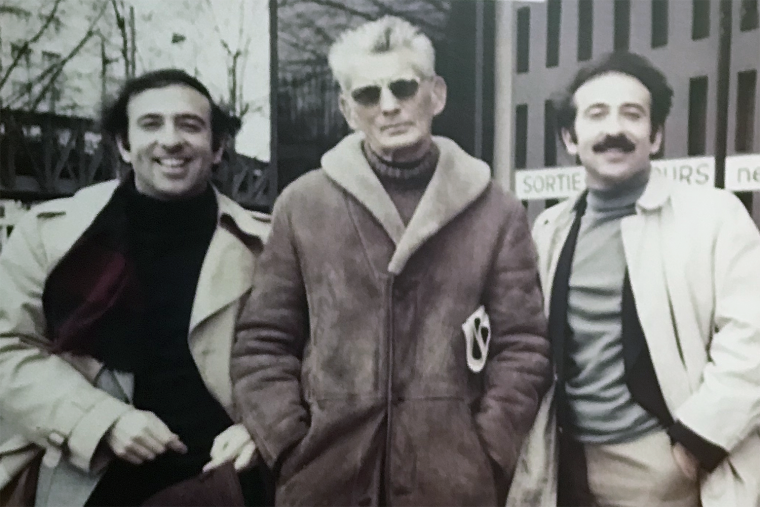
Levy did, in fact, share his paper with Mayoux, who then passed it along to Beckett. The playwright invited the young American scholar to his apartment. A friendship was formed, which grew to include Levy’s twin brother, the late Stuart Levy Hon. ’98.
“It is really a delight and an honor to give my correspondence, books, and gifts from Samuel Beckett and a variety of letters and articles about him to Wesleyan,” concluded Levy. ”After all, my introduction to Samuel Beckett began with that fateful day at Bradley Airport in 1959, when I was a junior in college. Now look at what an incredible adventure this school gave me through its education and through its excellent teachers—a reputation I’m pleased to say still remains.”
Matthew Winn ’92, vice chair of the Alumni Association and a cousin of Levy, concurred: “This event is the very essence of Wesleyan. Jay found a passion for something outside his field and pursued it with the same energy he approached his career. It was also touching to see his friends and classmates. The fact that they came is a testament to the deep and enduring relationships the University fosters.”
In her talk, Overbeck recalled Beckett’s gentle charge to “go round” to meet the people with whom he corresponded, which made “all the difference,” she said, adding an additional depth to her research. “Letters are a two-dimensional trace of relationships, written in very specific time and place, to a very specific audience,” she said. “Letters are written in an attempt to bridge time and distance, or to mediate a disjunction of feeling…. As such, each one constitutes a living moment.”
Photos of the symposium and accompanying exhibit are below: (Photos by Olivia Drake and Cynthia Rockwell)
